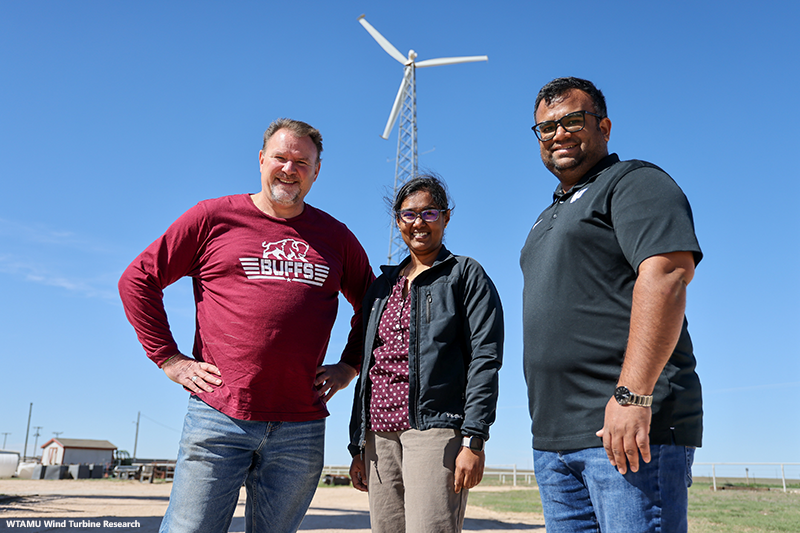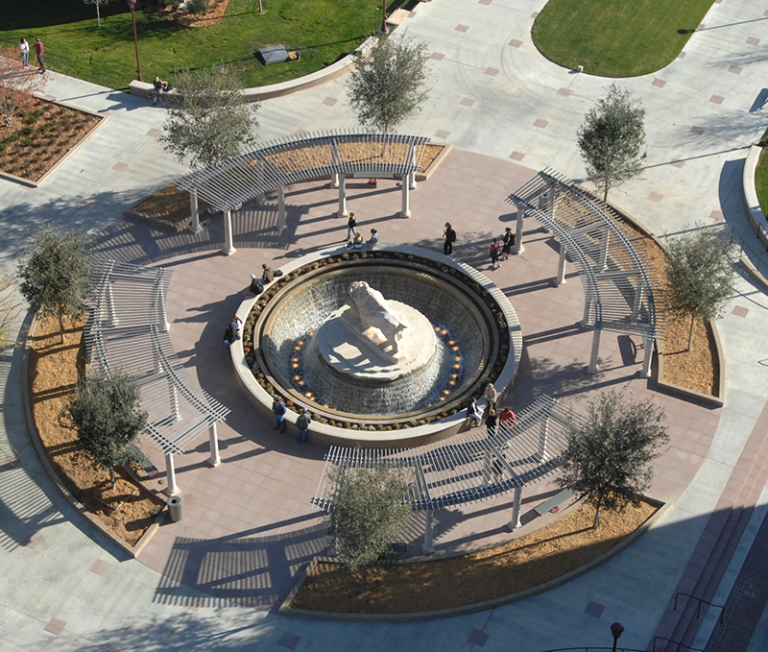
Some excerpts have been modified from a 2016 WT 125 White Paper by Walter Wendler, Angela Spaulding and Eddie Henderson.
West Texas A&M University (WTAMU, WT) prioritizes its role as a regional research university (RRU) by intentionally directing its research, teaching and service efforts to address the unique needs and opportunities of the Texas Panhandle. This aspiration begins with a simple conviction: if a university cannot meet the needs of its immediate region, it will serve no place well. By concentrating on local challenges and opportunities, an RRU generates knowledge that travels—helping similar regional areas across the nation and the world—while providing its students unmatched relevance and purpose.
WTAMU is situated in the 26-county Texas Panhandle, covering 25,712 square miles and home to 438,000 residents, within 62 school districts—many of which serve only a few dozen students. Amarillo/Canyon is closer to three other state capitals than it is to its capital, Austin. Such “fly-over” regions cover 75% of U.S. land and are home to approximately 50 million Americans. Approximately half of the world’s population resides in rural areas globally. This vast, underserved geography is WTAMU’s classroom, laboratory and museum. The campus environment is distinctly Panhandle. Architecture, landscaping and public art reflect local geography and heritage. The university faculty and staff serve not only as educators and professionals but also as role models and leaders within the Texas Panhandle communities they call home.
WT embraces its location not as a limitation, but as a catalyst for scholarship, creativity and economic development. Every academic program, partnership and research question begins with local relevance—rooted in the needs of the Texas Panhandle—and aims for solutions that resonate globally. To support this mission, WTAMU invests approximately $250,000 annually in internal grants fueling faculty and student research. These grants are not incidental; they are intentionally aligned with the goals of WT 125, the university’s vision to be a regional research university by addressing local issues first and leveraging impact from here to the world.
WT’s commitment to regional workforce and economic advancement is exemplified by its industry-partnered research labs, which foster collaboration among faculty, students and external stakeholders for the benefit of the people and communities of the region. The recently established Pantex Research Facility on the WT campus—Pantex’s first university-based R&D site—immerses students in advanced manufacturing and materials science related to national security. Similarly, the Caviness Meat Science and Innovation Center in the Paul Engler College of Agriculture and Natural Sciences supports the regional beef industry through research, carcass grading and workforce development. The Human-Machine Teaming Laboratory applies advanced tools such as VR/AR, robotics, motion capture and high-performance computing applied to real-world situations. These efforts and others drive foundational discoveries and highlight the WT’s role in fostering innovation and regional resilience.
WT defines excellence by how well it nurtures students, not by exclusivity. While the freshman experience and campus culture rival larger flagship universities, WT students are partners, not customers. Valedictorians, salutatorians and top-ranking students from the region’s 66 high schools increasingly recognize WT as a top-tier college of destination and academic excellence, with a deep commitment to serving high-achieving students within the region. This same commitment extends to master’s and doctoral students who choose WT for its outstanding faculty, applied research opportunities and real-world impact. Graduate students find a supportive academic environment where their work contributes meaningfully to both scholarship and regional advancement. WT is a launching pad for future scholars and professionals, as well as a model for both undergraduate and graduate education with a purpose.
WT designs its degree programs through a dynamic blend of faculty-driven innovation and community input, ensuring regional curricular relevance and responsiveness. Programs like the Doctor of Education (Ed.D.) emphasize applied, research-based solutions to rural educational challenges with broad applicability. Experiential learning through internships, apprenticeships, fieldwork and digital platforms is embedded across disciplines to cultivate lifelong learning and pragmatic, technology-enhanced problem-solving. The forthcoming Geneva Schaeffer Education Building will support WT’s mission by serving as a digital hub for instructional innovation, further advancing WT’s commitment to regional impact and academic excellence. Scheduled to open in fall 2025, the 60,000 sq ft facility will blend modern technology—such as smart classrooms and VR/AR innovation labs—with its storied architecture, offering students enhanced access and preparing WT to deliver high-quality digital education both regionally and globally.
WT’s strategic partnership with Texas A&M University provides access to the expertise and resources of a world-class, internationally recognized AAU institution. For example, WT and the Texas A&M Veterinary Education, Research and Outreach (VERO) Program collaborate to support students pursuing careers in veterinary and animal health sciences. Through this partnership, WT students gain access to hands-on learning opportunities, specialized coursework and mentoring from both WT and VERO faculty designed to prepare them for veterinary school admission and to understand regional animal needs. The relationship ensures a seamless academic pipeline from undergraduate preparation at WT to professional training with Texas A&M’s College of Veterinary Medicine. Furthermore, as part of the Texas A&M University System which invests nearly $1 billion in research and development annually, a portion of which is tailored to WT and the Panhandle’s priorities.
A regional research university is not a smaller version of a flagship university—it is a distinct and vital institution whose strength lies in its fidelity to regional issues and aspirations. As a regional research university, WT aims to demonstrate the responsibility regional universities have in uplifting rural America, advancing both regional well-being and broader societal good.
Walter V. Wendler is the President of West Texas A&M University. His weekly columns, with hyperlinks, are available at https://walterwendler.com/.
Angela Spaulding is the Vice President for Research and Compliance and Dean of Graduate Studies at West Texas A&M University.




